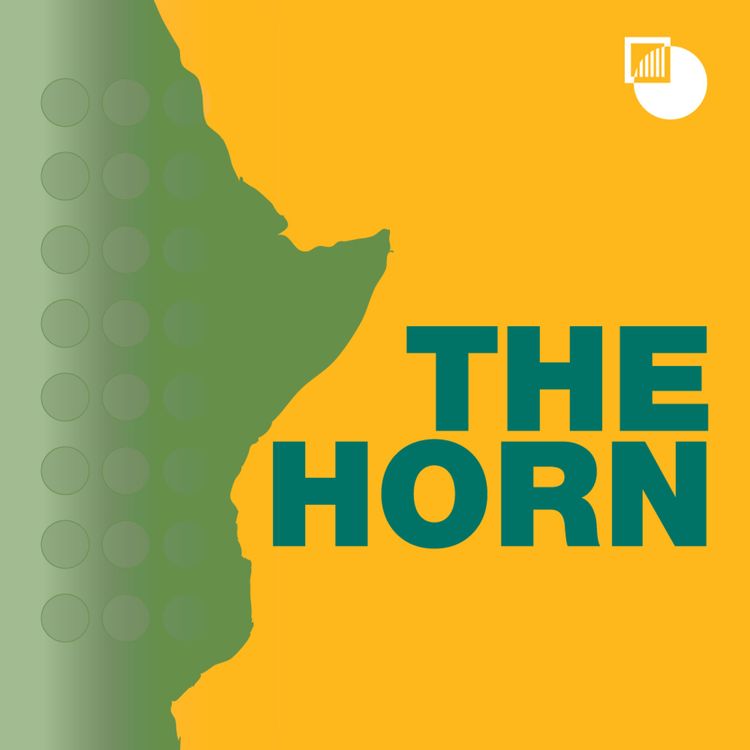Share

The Horn
Special Episode: What Next After Ruto is Declared Winner of Kenya’s Nail-biter Election?
Kenyans went to the polls last week in what turned out to be a closely fought but so far strikingly peaceful election. After six tense days of vote counting, Deputy President Ruto was declared Kenya’s next President with a wafer-thin majority. While the election has been broadly regarded as free and fair, his challenger, Raila Odinga, a political heavyweight backed by outgoing President and former rival Uhuru Kenyatta, has launched a legal challenge to the results.
This week in a special episode of The Horn, Alan speaks to Murithi Mutiga, Crisis Group’s Program Director for Africa, to discuss how Kenya’s nail-biting election has shaped up and the possible fallout of Odinga’s challenge. They outline both candidates' backgrounds and assess their respective campaigns in the build-up to election day. They talk about the significance of Odinga’s challenge to the vote, the role of Kenya’s electoral commission and the resilience of the country's democratic institutions in the wake of the election. They also assess how far ethnic divisions have played a role in the outcome of the election and where Kenya’s democracy might be headed if Ruto’s presidency is confirmed by the Supreme Court.
For more analysis, check out Crisis Group’s Kenya country page.
We want to hear from you as we start preparing Season Four of The Horn! If you have any feedback or suggestions for topics you’d like us to cover next season, you can write to podcasts@crisisgroup.org or get in touch with Alan directly on Twitter, @AlanBoswell.
More episodes
View all episodes

Bonus Episode: Reflecting on Sudan’s Collapse and Elusive Peace
58:36|This week on The Horn, we post a recent discussion between Crisis Group’s CEO and President, Comfort Ero, and leading expert Alex de Waal, about ongoing efforts to bring Sudan’s war to an end.In this bonus episode of The Horn, Alan brings listeners a special episode from a panel on Sudan’s war hosted by Crisis Group earlier this month at the Qatar Mediation Forum, a sideline event at the Doha Forum. The discussion is moderated by Yasmine Farouk, Crisis Group’s Gulf Director, and features Comfort Ero, Crisis Group’s President and CEO, alongside Alex de Waal, a leading expert on Sudan. They examine why Sudan’s war is so hard to stop, looking at repeated past failures to secure a ceasefire. They discuss how state authority has eroded across large swathes of the country, what the paramilitary Rapid Support Forces’ model of control looks like and how the war has become an internationalised proxy struggle shaped by Gulf, regional and global interests. They also debate the merits and limits of the current mediation architecture, including with formats like the Quad. They explore the risks of transactional engagement, the dilemmas around arms flows and embargo proposals, and the difficulty of making peace between fractious coalitions. Finally, they reflect on the scale of the humanitarian catastrophe in Sudan and highlight Sudanese-led resilience efforts, from emergency response rooms to local market and food-production adaptations, as essential to sustaining lives even as the politics remain deadlocked.
6. Global Disorder, Horn of Africa Turmoil. Can Europe Keep Up?
38:01||Season 7, Ep. 6In this episode of The Horn, Alan is joined by Heiko Nitzschke, Germany’s special envoy for the Horn of Africa, to discuss whether and how Europe needs to adapt its approach towards the Horn of Africa. While Europe used to act in relative sync with the U.S. in Africa, this is increasingly less the case. Meanwhile, numerous other powers, mostly from the Middle East, are pursuing their own objectives. Amid all this, how does Europe avoid going it alone in the Horn of Africa region? And, amid these shifts, is Europe rethinking longstanding policy ideas around development, multilateralism and mediation?This episode is produced in partnership with the Friedrich-Ebert-Stiftung.For more, check out our Horn of Africa page.
5. The El Fasher Atrocities
29:27||Season 7, Ep. 5In this episode of The Horn, Alan speaks with Julia Steers, investigations editor at Lighthouse Reports, about the large-scale atrocities that took place in Darfur’s El Fasher after the paramilitary Rapid Support Forces (RSF) captured the city from Sudan’s army last month. They retrace how the RSF’s seizure of El Fasher unfolded after months of siege and discuss what investigators have uncovered about the mass killings and widespread abuses that followed. They examine the scale and brutality of the attacks on civilians – many of them documented by the RSF themselves – and the ethnic pattern of the killings. They also explore the RSF’s motivations for the apparent coordinated and systematic mass killing, and how the group has responded to the reporting on these atrocities.For more, check out Lighthouse Reports’ publication “The Killing Fields of Al Fashir”, co-published with Sky News and Sudan War Monitor, our Hold Your Fire! episode “What Does the RSF’s Seizure of El Fasher Mean for Sudan’s War?” and our Sudan country page.
4. Mediators’ Brave New World
43:00||Season 7, Ep. 4In this episode of The Horn, Alan is joined by Timur Söylemez, former ambassador and former head of the mediation unit at Türkiye’s foreign ministry, to discuss the evolving landscape of conflict mediation and Ankara’s approach in the Horn of Africa and beyond. They unpack the headwinds facing mediators today amid proliferating conflicts, shrinking space for comprehensive peace deals and rising scepticism toward multilateral bodies. They explore how Türkiye chooses where to engage, how its approach differs from that of the U.S., EU and Gulf states, and favouring results over process. They also examine Türkiye’s efforts in the Horn, including its mediation between Somalia and Ethiopia, and its exploration of peace talks on Sudan, as well as how Ankara cooperates with other mediators from the U.S., Europe and the Gulf.This episode is produced in partnership with the Friedrich-Ebert-Stiftung.For more, check out our Türkiye and Horn of Africa pages.
Bonus Episode: What Does the RSF’s Seizure of El Fasher Mean for Sudan’s War?
24:41|Today we're bringing you a bonus episode on the fall of El Fasher in Sudan from Crisis Group's Global Podcast Hold Your Fire!.In this update episode of Hold Your Fire!, Richard speaks with Crisis Group’s Sudan expert Shewit Woldemichael and Horn director Alan Boswell about the paramilitary RSF capturing North Dafur’s capital El Fasher, the reports of horrific violence in the city and the implications for the trajectory of Sudan’s war. They discuss how the RSF managed to take control of the city after a siege of more than a year and the situation in El Fasher now amid a worsening humanitarian crisis and reports of mass killings of civilians. They discuss the de facto partition of Sudan with the RSF now controlling most of western Sudan and the army holding the capital Khartoum and the east. They also explore whether the capture of El Fasher may derail U.S.-led efforts to broker a ceasefire.For more, check out our recent episode Can a U.S.-Arab Roadmap Stop Sudan’s War? And our Sudan country page.
3. The Trial of South Sudan’s Vice President Riek Machar
33:54||Season 7, Ep. 3In this episode of The Horn, Alan is joined by Edmund Yakani, executive director of the Community Empowerment for Progress Organization, to discuss the trial of South Sudan’s first vice president and former rebel leader Riek Machar. They trace Machar’s rise and how he became a central, polarising figure in South Sudanese politics. They unpack the charges against Machar over his alleged role in a March 2025 attack on an army base in Nasir. They discuss the timing of the proceedings as South Sudanese elite jockey over the eventual succession of President Salva Kiir amid mounting speculation over his health. They also explore what to expect from the trial, what its outcome could mean for the risk of deepening violence and for the 2018 peace deal, and whether there remains a viable path to dialogue among South Sudan’s elites to ease tensions.For more, check out our Analyst’s Notebook “Criminal Charges against South Sudan’s Vice President Threaten New Twist in Conflict”, our recent episode “As South Sudan Quakes, an Heir Apparent Rises”, and our briefing “Succession Fever Deepens South Sudan’s Malaise”.
Bonus Episode: Can a U.S.-Arab Roadmap Stop Sudan’s War?
46:54|Today we're bringing you a bonus episode on Sudan from Crisis Group's Global Podcast Hold Your Fire!.In this episode of Hold Your Fire!, Richard talks with Crisis Group’s Sudan expert Shewit Woldemichael, Horn of Africa director Alan Boswell and Gulf & Arabian Peninsula director Yasmine Farouk about the latest shifts in Sudan’s war and recent diplomatic efforts. They chart recent battlefield developments, including the situation in El Fasher in northern Darfur, where fighting between the Sudanese army and the paramilitary Rapid Support Forces (RSF) is particularly intense amid a worsening humanitarian crisis. They examine how the balance of power between the warring parties is evolving, the interests of outside actors supplying arms, and the RSF’s push to establish a parallel government. They also look at diplomatic efforts to end the war, including the recent announcement by the U.S., Egypt, Saudi Arabia and the UAE, known as the Quad, outlining a roadmap for peace in Sudan, how the RSF and the Sudanese army are responding, and what the initiative can realistically achieve.For more, check out our recent Q&A “All Eyes on the Quad: How the U.S. and Its Partners Can Push for Peace in Sudan”, Alan’s Foreign Affairs piece “Sudan’s War Is the Shape of Things to Come” and our Sudan page.
2. Ethiopia’s Grand and Contested Dam
39:41||Season 7, Ep. 2In this episode of The Horn, Alan is joined by Crisis Group’s Africa Program Director, Murithi Mutiga, to discuss the inauguration of the Grand Ethiopian Renaissance Dam (GERD), Africa’s largest hydroelectric dam. They trace the project’s development during a tumultuous period for the region and explore its economic and political significance for Ethiopia. They examine why the project has raised tensions with the downstream Nile countries, Egypt and Sudan, why mediation efforts failed before completion, and to what extent concerns about GERD are justified. Finally, they discuss whether the dam can deliver the economic transformation Ethiopia hopes for, what it would take for Ethiopia, Egypt and Sudan to avert a future crisis, and how the dispute over the dam could still drive regional tensions for years to come.For more, check out our Ethiopia and Horn of Africa pages.
1. Dr. Comfort Ero on the Future of Peacemaking
32:51||Season 7, Ep. 1In this episode of The Horn, marking Crisis Group’s 30th anniversary, Alan Boswell speaks with president & CEO Comfort Ero about how the landscape of peacemaking has evolved since the organisation’s founding in 1995. They trace how the environment for conflict resolution has shifted from the aftermath of the war in Bosnia to today’s challenges, amid a second Trump presidency and an unravelling global order. They then turn to Africa, examining how leaders on the continent perceive the erosion of Western dominance and the obstacles facing efforts to resolve regional conflicts. They also discuss how the war in Sudan illustrates the difficulties of peacemaking amid a fragmenting world. Finally, they discuss the future of peacemaking amid these headwinds. For more, check out the last The Horn Episode with Comfort “Africa in a World between Orders” as well as our Africa and Multilateral Diplomacy pages.